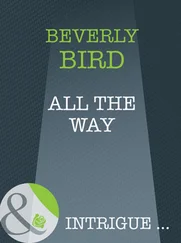The movie of Going All the Way is as true to the “novel” as it’s possible for movies of books to be. That in itself will cause controversy in some quarters (it already has), since the novel expresses the anger and confusion of a young man rebelling against the religion he grew up with, and the expression of that is portrayed in the movie. I would no more “censor” it from the movie than I would go back and excise it from the novel. Its re-publication in this edition will no doubt raise questions and criticism from those who feel my writing in the realm of spirituality during the past decade—beginning with my article “Returning to Church” in the New York Times Magazine in December of 1985 that led to the book Returning: A Spiritual Journey —is somehow in opposition to the novels that were written previously.
“Do you now renounce your earlier work?”
A young woman in the audience of a talk I gave at St. Bartholomew’s Episcopal Church in New York City in 1994 asked me that when I was there on a book tour for publication of Expect a Miracle: The Remarkable Things That Happen to Ordinary People . I said I did not at all renounce my earlier work, citing the view of novelist Ron Hansen, author of Mariette in Ecstasy , who said in an interview that a book was “religious” not because it was “about religion” but because it told the truth. I know that one person’s “truth” is the next person’s lie, but I mean “the truth” in the sense of it being the expression of the deepest feelings of a human being as he or she knows it; the kind of truth Willa Cather meant when she said “Don’t try to write the kind of short story that this or that magazine wants—write the truth, and let them take it or leave it.” No writing is worthwhile, Cather told an interviewer, if it doesn’t “cut pretty deep … the main thing was always to be honest.”
Going All the Way cuts pretty deep in the literal way, when Sonny Burns takes a razor to his wrist in a time of desperate frustration and despair. That was the truth of that character in that circumstance, just as his anger at the itinerant evangelist Luke Matthews was true, and his anger, in fact, at God. To “renounce” such scenes would be for me to “renounce” the truth as I see it as a writer of the people, time, and place I am trying to portray.
A writer I know and respect who read my screenplay of Going All the Way wrote to question my inclusion of the Luke Matthews scene, now that I am a person of declared religious faith. I answered him in a letter that “It would never occur to me to betray my own truth of that era of life by some kind of ‘religious revisionism’ imposed retroactively with the outlook that came thirty years later.”
By the same token, I would feel it a travesty to try to go back and revise the young men’s blighted views of women and women’s anatomies to adhere to the political correctness of a more enlightened era. I hope both male and female readers will understand, as most have over the years, that the blatantly sexist attitudes of the time, expressed in the thoughts, language, and behavior of the characters, were as destructive and de-humanizing to the men as to the women; that I no more advocate such attitudes than I advocate people cutting their wrists or cursing God; that in trying to tell the truth of the dark forces of life I hope to expose rather than encourage them, as all serious writers have done throughout history.
When people have asked me what this book is about I have said “it’s about friendship.” It’s also about seeking, questioning, risking, rising from despair and defeat, beginning again, finding the joy and love of being alive, in the moment, as Sonny Burns does in the end, when he is able to experience and appreciate the taste of pumpkin pie, the smell of coffee, the scene and color of autumn leaves, the flow of life that is moving within him, moving him on, again, to begin.
October 1996
When the two soldiers boarded the train at St. Louis they caught one another’s eyes for a moment in a mutually questioning gaze that broke off teasingly short of recognition, like a dream not quite recalled. The short, boyish-looking soldier moved away into the crowd, his apple cheeks burning brighter, as if they had just been shined, and he climbed in a coach farther down. Something about the face of that other soldier he had seen hinted of the past, and that was precisely what the young man wished to avoid on this of all days, which he felt marked the start of a whole new part of his life—the “real part,” he hoped. Settling into a seat by a window, he closed his eyes and breathed in deeply as the train jolted forward, nosing into the future, unlimited.
As soon as the conductor took his ticket he started for the club car, hoping for something that would cool as well as calm him. The air-conditioning system was on the blink, and it was one of those muggy, midwestern days in May when everything seems to stick to you. Women fanned themselves with newspapers and babies bawled in the thick heat.
The young soldier had to make his way through seven coaches to get to the club car, pressing on the airlock door of each one with all his might and trying not to show any sign of the exertion it took before he broke through the sealed barrier with a foom of triumph. By the time he reached his destination his arms felt like spaghetti. He determined he would begin the daily push-ups and other basic exercises he had promised himself to continue on his own after basic training but never kept up. Now that he was done with the Army and his real life was beginning, he was going to do those things, he was going to discipline himself.
He ordered a Schlitz and started to undo the button of his collar that was so tight it felt like a string cutting his neck, but then he saw the long tan legs of the blonde. He pulled his tie tighter into place and tried to center it, smiling as he choked. The girl seemed like an omen to him of the phase of his life that was now beginning, a time in which well-tanned and lovely women would be his rightful due. When the Schlitz came, he lifted the cool can to his lips in a private toast, but his trembling hand tipped it too quickly and some of the beer went drooling down his chin, pretty as a madman’s spittle.
Mercifully, the girl wasn’t looking at him. He wiped fiercely at his chin and the front of his tie and jacket, then calmed himself with a long, carefully aimed draught of the beer. There was an empty seat on one side of the girl, and on the other side was an old guy around forty wearing a shiny suit with one of those diamond Shriners pins in the lapel, obviously no competition. The girl looked cool and athletic—not in a volleyball or field-hockey way, but in something graceful, like swimming. She would glide through the water with long, arching strokes, no thrashing around, just a little foam raised prettily by the rhythmic flutter of her delicate feet. The young man pulled out his cigarettes, trying to devise a good opening line. What do you think about Senator McCarthy and the Red menace? No, that could just start an argument. Never open with religion or politics, that was the oldest rule of all. What do you think of Marlon Brando? Did you like The Catcher in the Rye? Is Dave Brubeck really art? Will the mambo last? Have I seen you someplace before? Do you want to fuck?
He could think of nothing witty or original and had almost finished the beer. The near-empty can made a nervous rattle on the circular chromium serving stand. The young man decided to order another and promised himself that when he finished the second one he would go and sit down by the girl whether he had thought of a sharp opening line or not. It took him some time to get the attention of the old colored waiter, and he feared the girl might notice his lack of success. Once she stared right at him and smiled, but he looked away, pretending not to notice. When the waiter finally brought the beer, he gave him an extra large tip, hoping to establish good relations for the future, but the old guy merely grunted when he pocketed the change. No matter, the beer was cold, and the soldier could feel his determination blooming within himself, nurtured by the Schlitz. He would soon be ready. He would stride with casual confidence across the aisle, slip into the seat beside the girl, and say whatever first came to his mind.
Читать дальше












